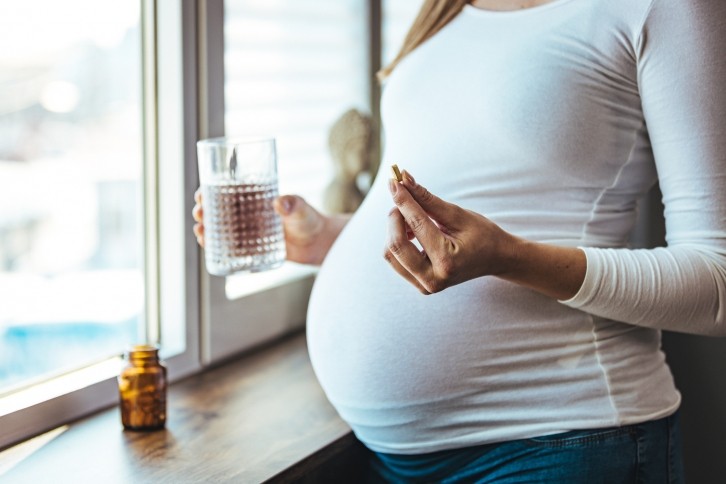Prevalent vitamin D insufficiency leads to increased supplement recommendation for Northeast Europe

It was concluded neither diet nor the use of multivitamins affected vitamin D levels; only vitamin D supplementation helped in maintaining optimal levels.
The researchers, from Rīga Stradiņš University, in Latvia, also found that the seasons did not significantly impact vitamin D levels in those who supplemented all year round.
Considering the prolific rate of insufficiency, the authors propose a recommendation for vitamin D intake during pregnancy at a dose of 2500 IU all year round to maintain optimal vitamin D levels in pregnant women (>45 ng/mL) in Northeastern Europe.
According to the Latvian Ministry of Health, the recommended intake of vitamin D during pregnancy is currently 400 IU vitamin D daily. In practice, higher doses are recommended by medical professionals based on recent research which suggests that taking 1000–4000 IU/day could keep serum levels optimal during pregnancy.
The authors of the current study say: "Our research supports this observation, as the overall dietary intake from supplements in pregnant women appeared to be 2500 IU/d."
Interestingly, the median serum found was higher than previous studies of pregnant women in Europe. The authors suggest this difference could be explained by the increased interest in vitamin D supplements during the COVID-19 pandemic.
Despite the slightly improved serum levels compared to previous studies, more than one third of the participants had vitamin D deficiency according to the US recommendation.
Vitamin D in pregnancy
Vitamin D deficiency in pregnancy can affect the health of both mother and baby in utero.
As well as its usual role in regulating calcium and bone metabolism, maternal vitamin D deficiency has been associated with risk of pre-eclampsia, preterm birth, insulin resistance, bacterial vaginosis, gestational diabetes, osteomalacia, and muscle weakness, as well as an increased risk of immune dysfunction in the mother.
Different national guidelines set optimal serum vitamin D levels at around 20–50 ng/mL and offer different recommendations for supplementation, with mentioned daily doses ranging from 400 IU to 4000 IU.
In addition, there are many different interpretations and conflicting evidence on the possible effects of vitamin D deficiencies or overdoses on maternal and foetal health.
The WHO recommends a dietary intake with supplementation starting with 200 IU/day, but the Latvian Ministry of Health recommends the intake of vitamin D during pregnancy of 400 IU daily. Higher doses are recommended by professionals on the basis of recent research in other countries that claim taking more vitamin D could keep serum levels optimal during pregnancy.
The study
This study was a cross-sectional study with a total of 735 participants. It took place in outpatient clinics and maternity wards across Latvia regions between July 2020 and January 2023. Inclusion criteria consisted of pregnant women in the 27th to 40th week of gestation and postpartum women up to the 7th day after delivery who had resided in Latvia for more than one year.
Blood samples, a food frequency questionnaire, demographics questionnaire, body measurements, and medical documentation were used for data collection.
The main dietary sources of vitamin D for the study respondents were fish, eggs, and dairy products but the authors found that diet did not have a notable impact on vitamin D serum levels. The dietary intake of vitamin D for pregnant and postpartum women was found to be 2.5 mcg/d (100 IU) and 2.0 mcg/d (80 IU), respectively.
Notably, vitamin D supplementation was the key factor in maintaining optimal vitamin D levels. The intake of vitamin D by supplements was 62.5 mcg for both groups.
It was found that Serum Vitamin D concentration in pregnant women (42.9ng/ml) was higher than that of postpartum women (31.8 ng/ml). This was in connection with the fact more pregnant women (84.1%) took vitamin D supplements than postpartum women (67.5%), which the authors suggest is associated with the higher education level of the pregnant women in the sample.
Source: Nutrients
https://doi.org/10.3390/nu15153493
“Vitamin D Intake and Serum Levels in Pregnant and Postpartum Women”
Authors: Meija, L.; Piskurjova, A.; Nikolajeva, K.; Aizbalte, O.; Rezgale, R.; Lejnieks, A.; Cauce, V.












